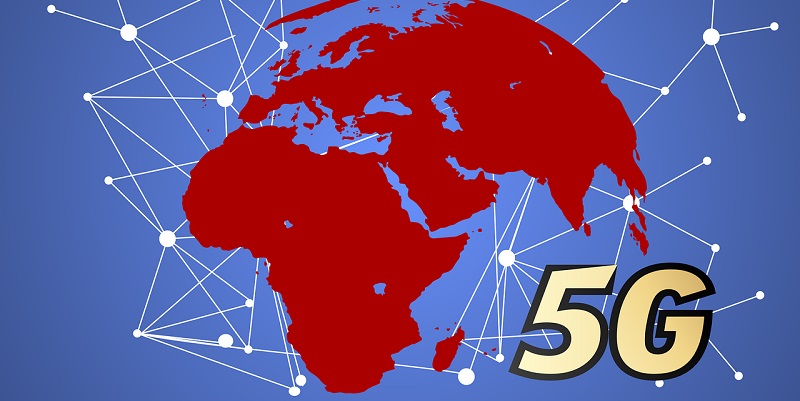The advent of 5G technology is undeniably transforming the landscape of digital connectivity, paving the way for a new era of innovation. With its lightning-fast speeds, low latency, and increased capacity, 5G is set to revolutionize various industries and technologies. From smartphones to wearables, from connected cars to virtual reality, the integration of 5G is unlocking new realms of possibilities. In this article, we will explore some of the most notable innovations that harness the power of 5G and discuss their implications for the future.
The Samsung Galaxy S21 Ultra 5G
One of the most notable innovations harnessing the power of 5G is the Samsung Galaxy S21 Ultra 5G. This flagship device combines cutting-edge technology with the lightning-fast speeds of 5G connectivity. With its stunning display, powerful processor, and versatile camera system, the Galaxy S21 Ultra 5G offers a truly immersive user experience. Moreover, the device’s advanced camera system, powered by artificial intelligence, takes advantage of 5G’s low latency to deliver real-time image processing. Users can capture professional-quality photos and videos with ease, elevating their creativity to new heights.
Advanced Camera System and AI Integration
The integration of artificial intelligence with 5G technology in smartphones, such as the Samsung Galaxy S21 Ultra 5G, is a game-changer for photography and videography enthusiasts. With 5G’s low latency, users can experience seamless real-time image processing, allowing for instant adjustments and enhancements. This combination enables users to capture stunning shots even in challenging lighting conditions. Additionally, the power of 5G connectivity facilitates quick and seamless sharing of high-resolution images and videos, enabling users to showcase their creativity instantly.
The Apple Watch Series 6
In the realm of wearable technology, the Apple Watch Series 6 stands out as a frontrunner. Boasting a range of health and fitness features, the Apple Watch has become an indispensable tool for many. However, the inclusion of 5G would significantly enhance the watch’s capabilities. With faster data transfer speeds and lower latency, the Apple Watch Series 6 can deliver real-time health monitoring data to users, providing more accurate and immediate insights. Whether it’s tracking heart rate, monitoring sleep patterns, or facilitating telehealth services, the integration of 5G takes the Apple Watch’s functionality to new heights.
The Lenovo Flex 5G is another device that is revolutionizing connectivity
This innovative laptop combines the power of 5G with sleek design and versatility. With 5G, users can download large files in seconds and enjoy uninterrupted video conferencing, making it an ideal tool for remote work and learning. The increased reliability and speed of 5G connectivity eliminate the frustrations of slow internet connections, allowing users to stay productive wherever they are. The Lenovo Flex 5G sets a new standard for portable computing, enabling users to work and learn seamlessly in the interconnected world.
The Impact of 5G on Connected Cars
In the ever-evolving automotive industry, 5G is set to redefine the concept of connected cars. With its ultra-fast speeds and near-instantaneous response times, 5G enables seamless communication between vehicles, infrastructure, and the digital world. This connectivity revolutionizes the driving experience, enhancing safety, navigation, and entertainment. The integration of 5G is expected to further enhance these features, paving the way for fully autonomous vehicles. With the ability to transmit and process massive amounts of data in real-time, 5G-powered cars can make split-second decisions, improving road safety and transforming transportation as we know it.
The Future of Autonomous Vehicles
The advent of 5G technology brings us closer to the realization of fully autonomous vehicles, which are capable of navigating and making decisions without human intervention. While autonomous vehicles are already in development, the integration of 5G takes their capabilities to a whole new level. With its low latency capabilities and high bandwidth, 5G enables vehicles to communicate instantly with their surroundings and with each other, creating a network that ensures smooth and safe operations. The integration of 5G is expected to enhance the accuracy, reliability, and efficiency of autonomous vehicles, paving the way for a future with safer and more sustainable transportation systems.
The Oculus Quest 2 and Virtual Reality
In the realm of virtual reality (VR), the Oculus Quest 2 stands out as an exceptional device. With its wireless and standalone design, the Quest 2 offers a truly immersive VR experience. However, the inclusion of 5G connectivity would take VR to new heights. With its ultra-fast speeds, low latency, and high capacity, 5G enables seamless streaming of high-quality VR content, eliminating the need for wired connections and expanding the possibilities of immersive entertainment. Users can explore virtual worlds, engage in multiplayer experiences, and collaborate in real-time with unprecedented ease, making the Oculus Quest 2 an even more compelling choice for VR enthusiasts.
The transformative power of 5G technology is revolutionizing connectivity and innovation across various industries. From smartphones to wearables, from connected cars to virtual reality, 5G is unlocking new realms of possibilities, enhancing capabilities, and paving the way for groundbreaking advancements. As we continue to embrace the power of 5G, we can expect further disruptions and innovations that will shape and enhance our daily lives. The future is bright, and with 5G as the driving force, we are embarking on an era of unparalleled connectivity and limitless potential.

